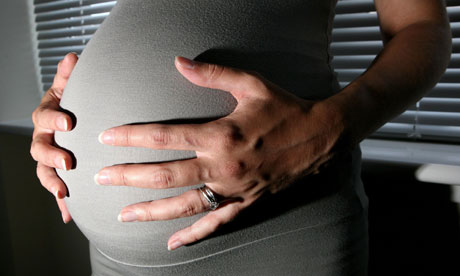
The hundreds of thousands of women who miscarry each year should try to become pregnant again soon rather than waiting for months, doctors advise today.
Would-be mothers who conceive within six months of a first miscarriage are more likely to have a successful and uncomplicated subsequent pregnancy, according to a study in the British Medical Journal. They are at less risk of losing a second child compared with those who leave it until between six and 12 months.
In a study of 30,000 women in Scotland who had a miscarriage between 1981 and 2000, 85% of those who conceived again within six months had a healthy baby, but just 73% of those who waited more than two years did so. Those who become pregnant within six months also have less chance of having a premature baby, a child with low birthweight or a caesarean delivery, according to research led by Dr Sohinee Bhattacharya, a lecturer in obstetric epidemiology at Aberdeen maternity hospital.
The findings contradict World Health Organisation advice that women wait at least six months before trying to become pregnant again. That guidance should now be revised, the researchers believe.
Almost 800,000 women a year give birth in the UK. There are no official statistics for the number of miscarriages but up to one in four pregnancies are estimated to end that way.
Doctors said the study should reassure women after a miscarriage, especially the growing number of older women seeking to become mothers who could not risk following the WHO's advice.
"This is good news for the many women across the country who are trying to get pregnant but have unfortunately had a miscarriage," said Professor Steve Field, chairman of the Royal College of GPs. "Miscarriages are a very traumatic event and this new evidence will help health professionals reassure patients and enable them to give some good news and hope to patients at a time when they are often very anxious and under great stress."
Dr Tony Falconer, the president-elect of the Royal College of Obstetricians and Gynaecologists, said the WHO's advice had no basis in evidence and women should not worry about time limits. "Reproductive failure is very distressing for all couples, both in the first trimester and especially – the worst scenario – when it happens much later in the pregnancy. We shouldn't say to people who have had a miscarriage early in pregnancy, 'oh, don't worry, just try again' – that's clearly not good advice," said Falconer. "The sound advice from obstetricians is that when you feel physically and emotionally ready, there's no time-limit. If you feel within one month or two months that you want to conceive expeditiously, then you should go ahead and try. I agree with the BMJ research, not the WHO."
But Mervi Jokkinen, of the Royal College of Midwives, said caution should be applied before issuing universal advice based on the findings.
About half of all miscarriages have a genetic cause, though others happen for hormonal, immunological or anatomical reasons, or due to infections, such as German measles.
The Miscarriage Association recommends that women and their partners are the best judges of when to try again, but that women who have had an ectopic pregnancy, or have an illness, may want to wait longer, and that those who have had a late miscarriage or repeated losses should talk to a doctor first.

